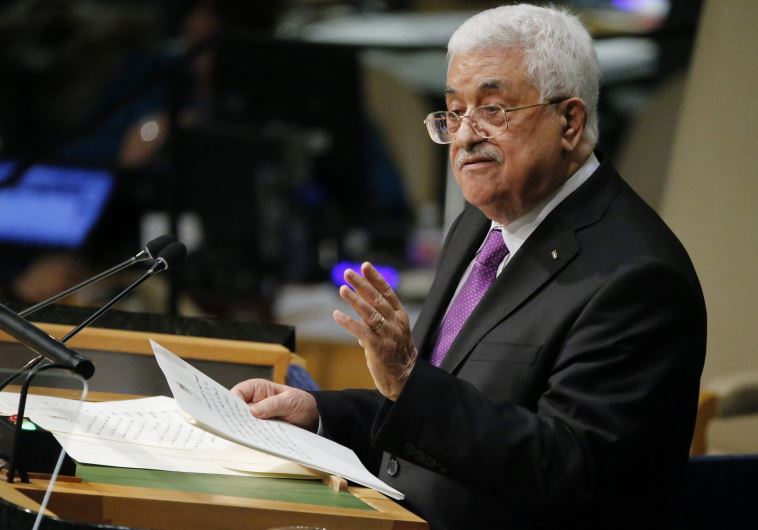Abbas: We will join all 522 international organizations
Abbas admitted that “popular resistance” has not taken off in Palestinian society, but said he wants to see it play a larger role in the coming years.
 Palestinian Authority President Mahmoud Abbas addresses UN General AssemblyUpdated:
Palestinian Authority President Mahmoud Abbas addresses UN General AssemblyUpdated: